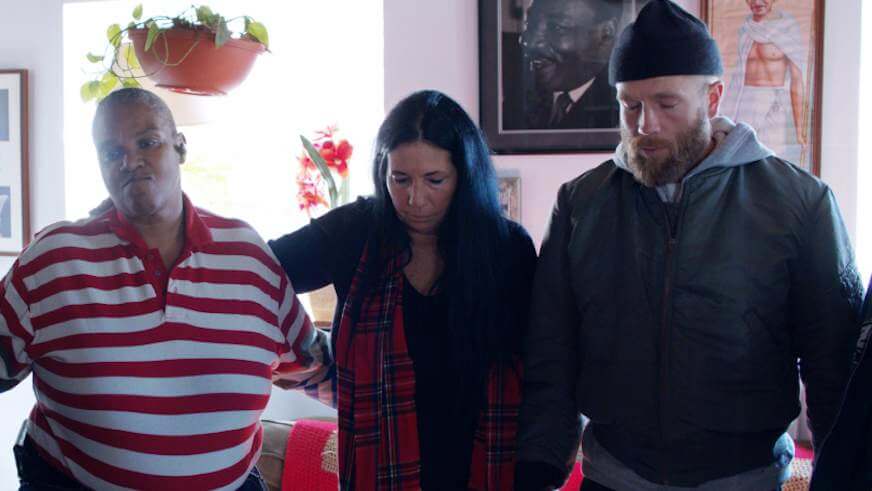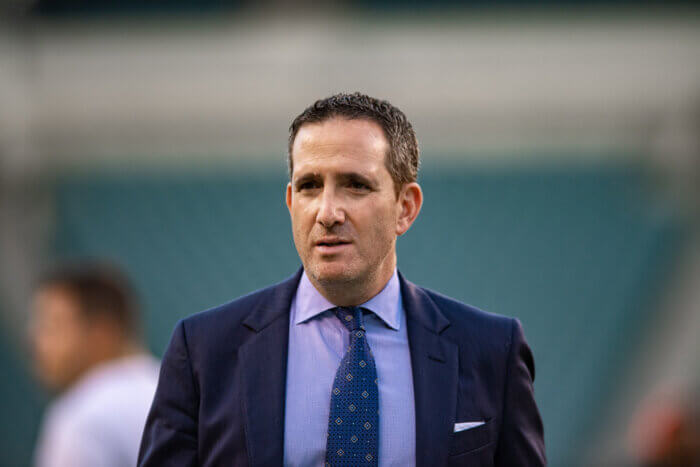When Philly native director-writer-actor Mark Webber un-spools his new flick, “Flesh and Blood,” on October 21 as part of 2017’s Philadelphia Film Festival, much of its action and characters will seem familiar to those who know the work and family of the local auteur.
Starting life in North Philadelphia, never seeing his father since age 5, dealing with a strong-willed, renowned activist mother and an artistically minded younger half-brother with Asperger Syndrome: all these things are a real part of Webber’s existence, beyond acting in films for the indie-minded directorial likes of Steve Buscemi (2000’s “Animal Factory”), Jim Jarmusch (2005’s “Broken Flowers”), and Gus Van Sant (2018’s “Don’t Worry, He Won’t Get Far on Foot”).
Yet, as a director and writer – something he has done since 2008’s Philly-filmed “Explicit Ills” – Webber has become a master of his own universe. Across several directorial efforts, Webber has exploded reality (and with it, the designated confines of the documentary medium), and all that entails, such as the activist politics of homelessness and Green Party sustainability espoused by him and his mother, Cheri Honkala, a one-time vice-presidential nominee of the Green Party in 2012.
With that, “Flesh and Blood” examines the real life and a true set of stories, experimentally, blurring all genre lines between narrative and documentary. The fact that his mom, step-brother, North Philly, and yes, even his long-lost father are in his new movie, just heightens the trippy experience.
“I found my voice as a filmmaker on the second thing I wrote and directed, “The End of Love” when I developed this process, reality cinema,” said Webber from Wales in the U.K., where he’s working on his next directorial effort. “’Flesh and Blood’ feels like a documentary, but it couldn’t be farther from the truth. There are certain elements of our life – mine, my mother’s – in there, yet it was written, staged, and all very intricately interwoven.”
The film is obsessed by symbolism and vulnerability (e.g. making “Mark” played by Webber, a prisoner who upon release heads home to North Philly and other demons of imprisonment), but isn’t all nonfiction. “No I was never in prison, but know plenty of those who have been in my old neighborhood, those who struggled there then must find their way back in,” Webber said.
The director loved dropping his own life and that of his family into the mix while watching his brood acting out his lines, and improvising their own.
“It helps to have had a very colorful upbringing,” he said with a laugh, of his “Flesh and Blood” co-star and mother.
Honkala raised Webber as a single mom in North Philly and the pair were homeless for a time. Along with pulling themselves out of poverty (while making it their socio-political raison d’etre), she became the co-founder of the Kensington Welfare Rights Union (amongst other activist positions), and her politics were Webber’s politics. (“She’s still my mom though, and we butt heads all the time,” he said with a chuckle when I call Honkala a ‘hot shot.’)
Webber’s younger step-brother Guillermo Santos is a model teenager whose promise as a playwright and an actor are apparent in his wise improvisations. “I’ll be asking him for Hollywood contacts someday,” said Webber.
There is North Philadelphia in all its tattered ragged glory – a character unto itself.
“The landscape of row homes, the people on the corner, the El train – there’s an old-school beauty to the neighborhood, a vibrancy,” Webber said. “I know there is gentrification going on up there, so it was amazing to find these colors and textures still there, a self-sustaining aesthetic.”
One of the most nerve-striking aspects of the film is a spoiler for those who will attend the October 21 screening: the father who left Webber at age 5 is in “Flesh and Blood.” Webber said he got the idea to make this film because one year before its start, he began a search for his pop. “I only wished I brought a camera to that,” he said.
When Webber found him, he invited his father and Guillermo’s father to act in his latest movie.
“There are interesting parallels between the two – they were both heroin junkies. And they are both dying. What you see in this movie is me seeing my father for only the second time in my life – in real time,” stressed Webber. “These are the real life through lines that make this film tick.”



























